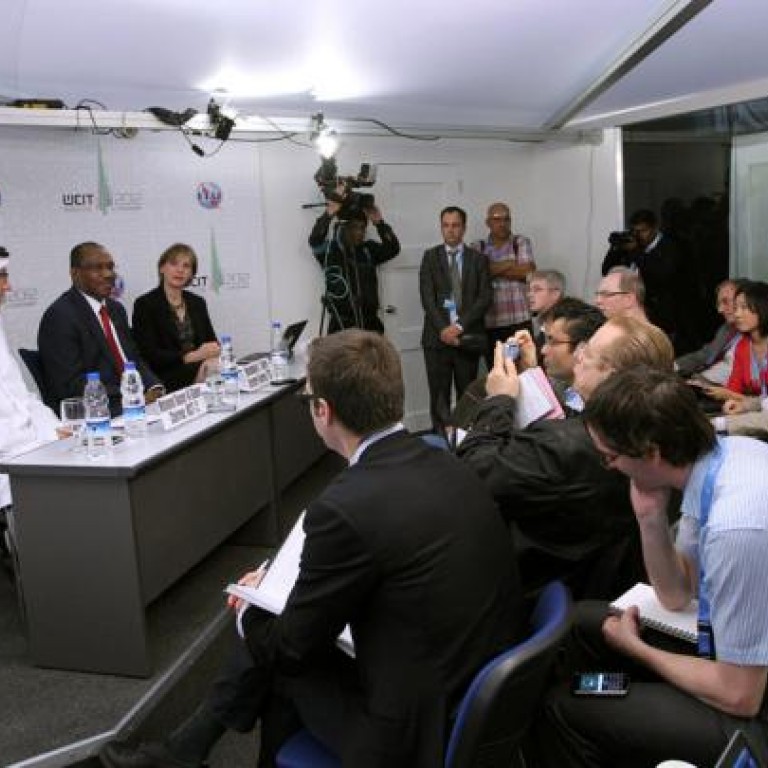
UN control of internet rejected by Western nations
Nations led by the US refuse to sign telecoms treaty over fears it could curb free speech
In a moment of high drama at the end of nearly two weeks of talks on an international telecommunications treaty, Western nations led by the US rejected a proposal negotiated by more than 190 countries after delegates were unable to resolve an impasse over the internet.
"It is with a heavy heart that I have to announce that the United States ... is unable to sign the agreement in its current form," Terry Kramer, head of the US delegation, announced moments after a final draft had been approved by a majority of nations.
The US announcement was seconded by Canada and several European countries after talks that had often pitted Western governments against developing countries, including Iran and China.
The talks were held under the auspices of the International Telecommunication Union, a United Nations agency.
The acrimonious end to the talks does not mean international telephone calls or cross-border internet traffic will suddenly be cut off. The 89 countries that signed the treaty yesterday could implement it on their own, with others putting separate agreements in place.
The US has maintained that the internet should not be mentioned in the treaty, which deals with technical matters such as connecting international phone calls, because doing so could lead to curbs on free speech and replace the existing, bottom-up form of internet oversight with a government-led model.
A bloc of countries led by Russia and including China and the host nation, the United Arab Emirates, argued that the internet should be within the scope of the talks because internet traffic travels through telecommunications networks.
The goal of the talks, led by Mohamed Nasser al-Ghanim, director-general of the Telecommunication Regulation Authority of the United Arab Emirates, was to revise a document that was last updated in 1988, when the internet was in its early stages.
The US delegation was apparently angered by developments early on Wednesday when Russia and its allies succeeded in winning, by a mere show of hands, approval of a resolution that mentioned the internet.
The show of hands followed an attempt by Ghanim to gauge, as he put it, "the temperature of the room".
The US and its supporters interpreted the wording as supporting a shift in the governance of the internet to bring it under the regulatory framework of the telecommunication union.
Currently, the internet is overseen by a loose grouping of organisations, mostly in the private sector, rather than governments.
But at least one of these organisations, the Internet Corp for Assigned Names and Numbers, operates under a contract from the US government.
Delegations were also divided over issues such as cybersecurity, fighting spam and proposals that telecoms companies should receive payment for carrying internet traffic.
